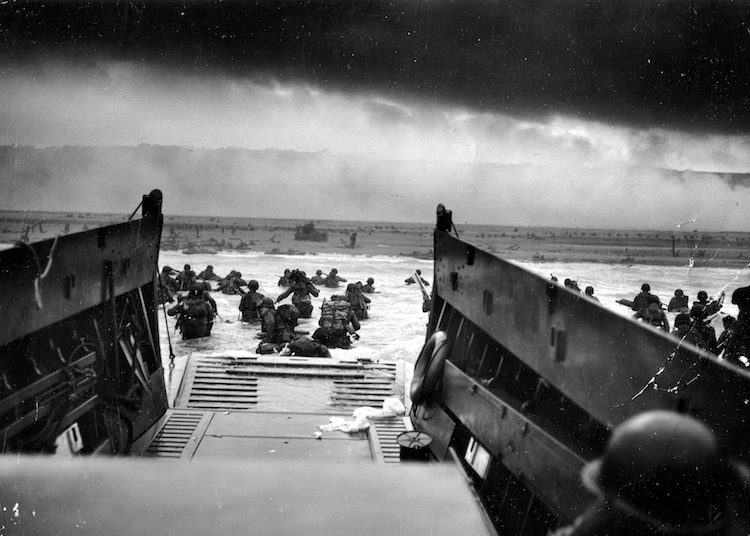
A LCVP (Landing Craft, Vehicle, Personnel) from the U.S. Coast Guard-manned USS Samuel Chase disembarks troops of Company E, 16th Infantry, 1st Infantry Division (the Big Red One) wading onto the Fox Green section of Omaha Beach (Calvados, Basse-Normandie, France) on the morning of June 6, 1944. This photo, by Robert F. Sargent, is known as ‘Into the Jaws of Death.” (Photo: Conseil Régional de Basse-Normandie / National Archives USA)
Launched on June 6 with D-Day, the Normandy Invasion lasted throughout the summer of 1944, as Allied troops liberated all of northern France. Now, in order to make information about the Invasion more accessible, the PhotosNormandie Flickr account has over 4,300 archival images from D-Day to August 1944 available in one location.
From iconic images like Into the Jaws of Death by Robert F. Sargent to troops interacting with locals as they liberate areas of Normandy, the vast archive is an excellent way to get a feel for the magnitude of the operation. The online resource pools together images from both the US and Canadian National Archives, as well as local institutions such as the library of Cherbourg-Octeville.
The project began on the 60th anniversary of D-Day, as a way to crowdsource descriptions of images on the now-defunct Archives Normandie, 1939-1945. Thus, users are encouraged to comment on photos if they are able to improve descriptions, locations, and identifications. This independent organization now makes it possible to see the often harrowing, sometimes touching, images of this complex time in world history.
PhotosNormandie has over 4,300 archival images documenting the Normandy Invasion from June to August 1944. Volunteers continue to add to the collection as new materials become available.
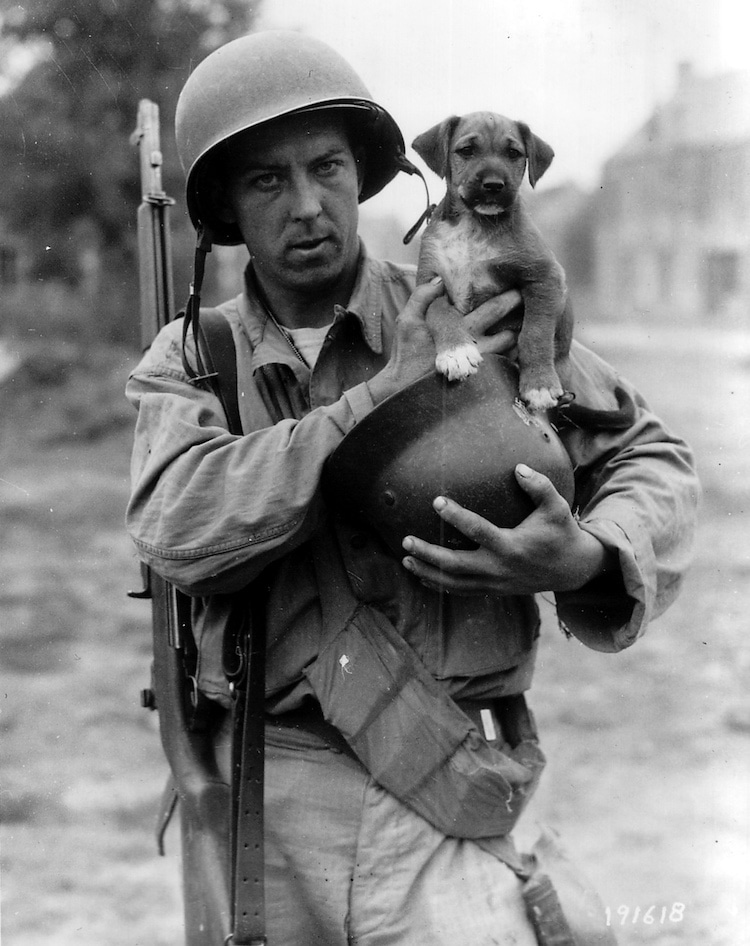
Pfc Joseph E. Day (of Belloire, Ohio) holds a puppy named “Invasion” in a German helmet. Photo taken on July 14, 1944.
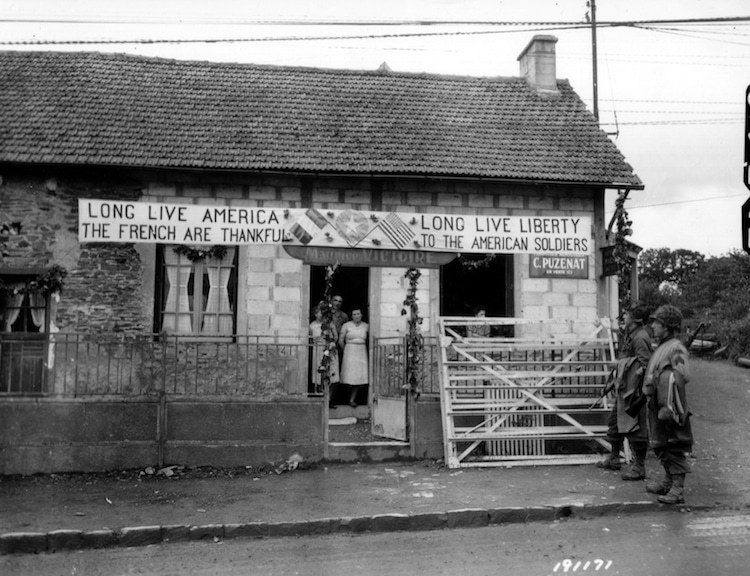
Two GIs read a pro-American sign on the front of a home. Originally published on July 11, 1944 in The Newburg News N.Y. (Photo: Conseil Régional de Basse-Normandie / National Archives USA)
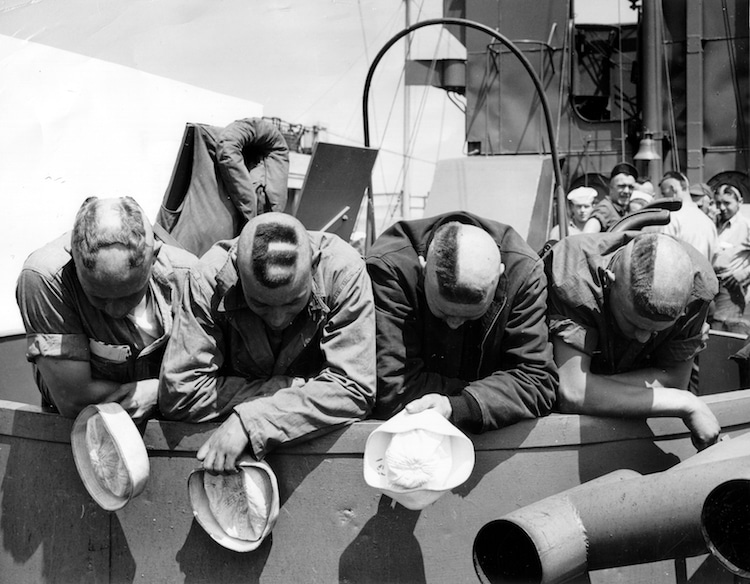
Four sailors from the U.S. Navy with the letters to spell H.E.L.L. shaved into their heads. (Conseil Régional de Basse-Normandie / National Archives USA)
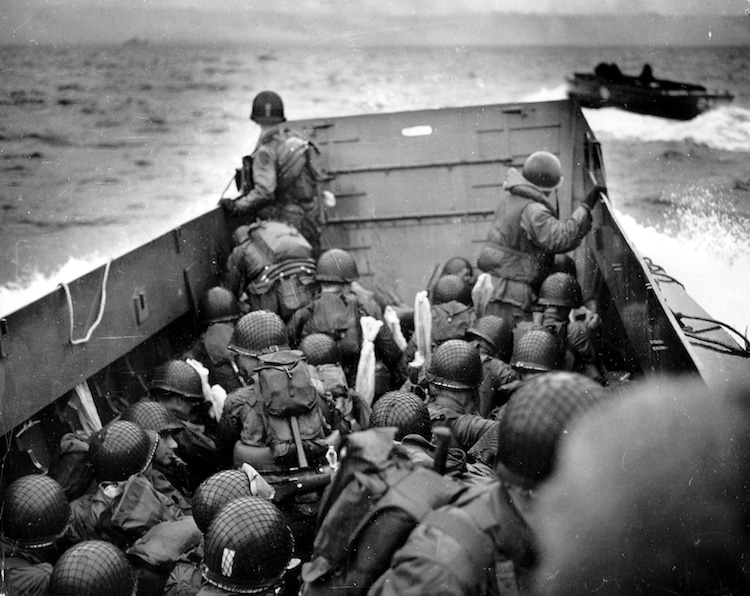
Aboard a LCVP (or Higgins boat), heading toward Omaha Beach. Photo by Robert F. Sargent of the US Coast Guard. (Photo: Conseil Régional de Basse-Normandie / National Archives USA)
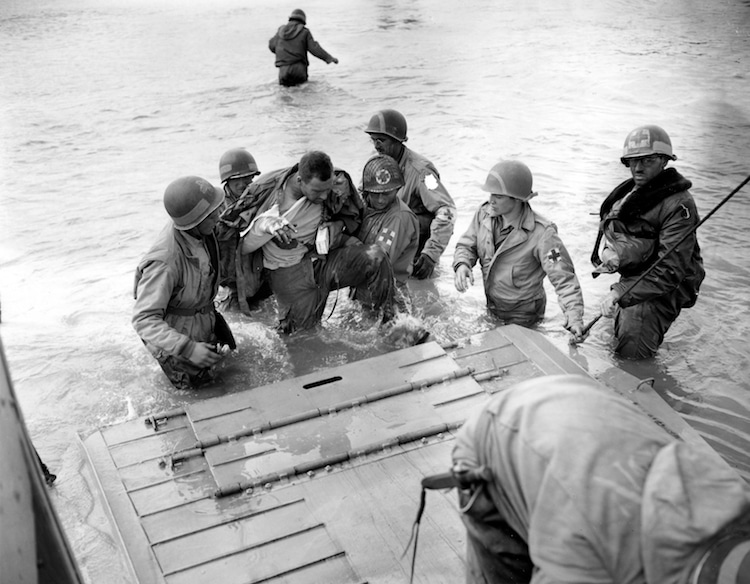
Nurses help an injured paratrooper get into a hospital LCVP on Utah Beach. (Photo: Conseil Régional de Basse-Normandie / National Archives USA)
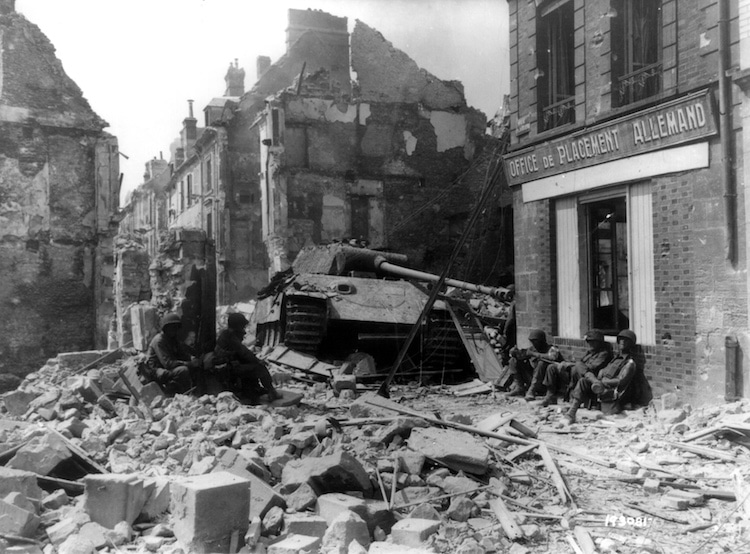
American GIs survey the damage in Argentan, a small town in Normandy which was almost completely destroyed during fighting following the Allied Invasion. The city was liberated on August 20, 1944 by American troops. (Photo: Conseil Régional de Basse-Normandie / National Archives USA)
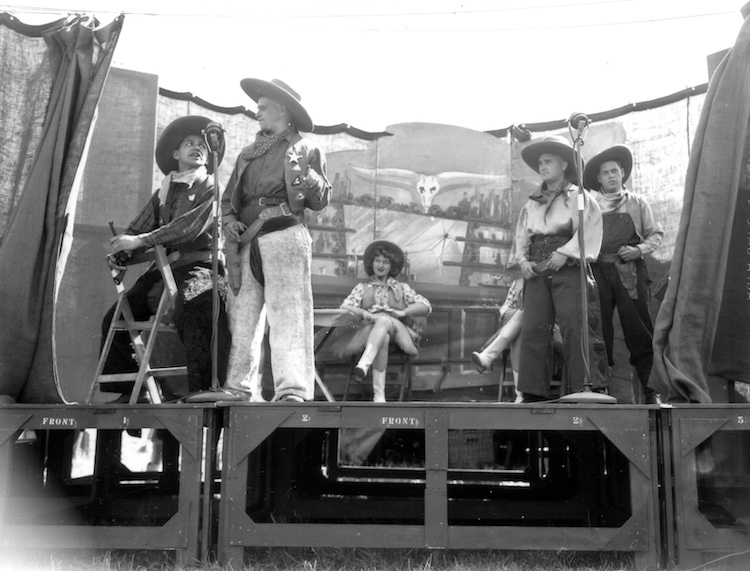
Actors dressed as cowboys as part of the Canadian Army Invasion Revue in Banville on July 30, 1944. (Photo: Conseil Régional de Basse-Normandie / National Archives of Canada)
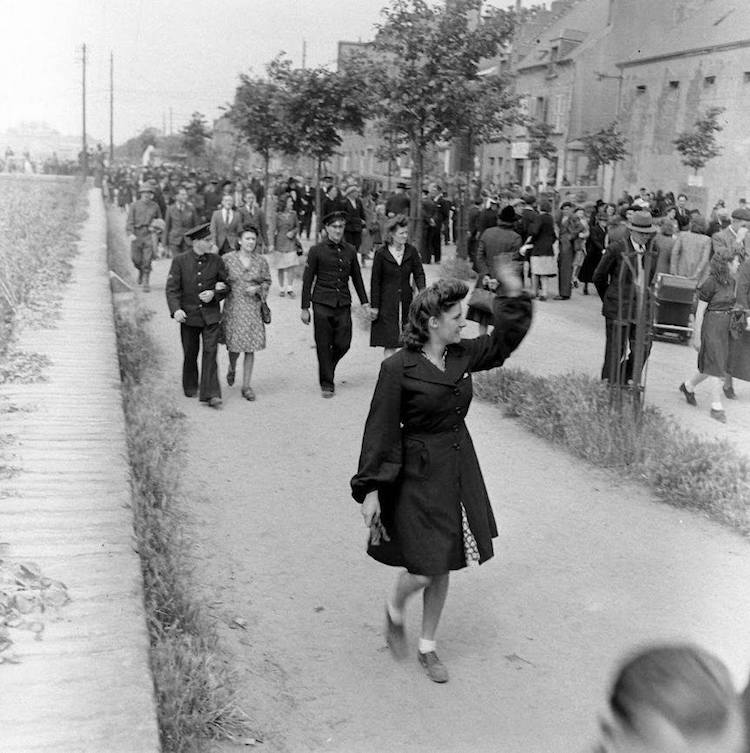
Paule M. Truffert among civilians in Cherbourg. According to LIFE, she was the only girl in town who spoke English. Image dates to circa July 14, 1944. (Photo: Google Cultural Institute)
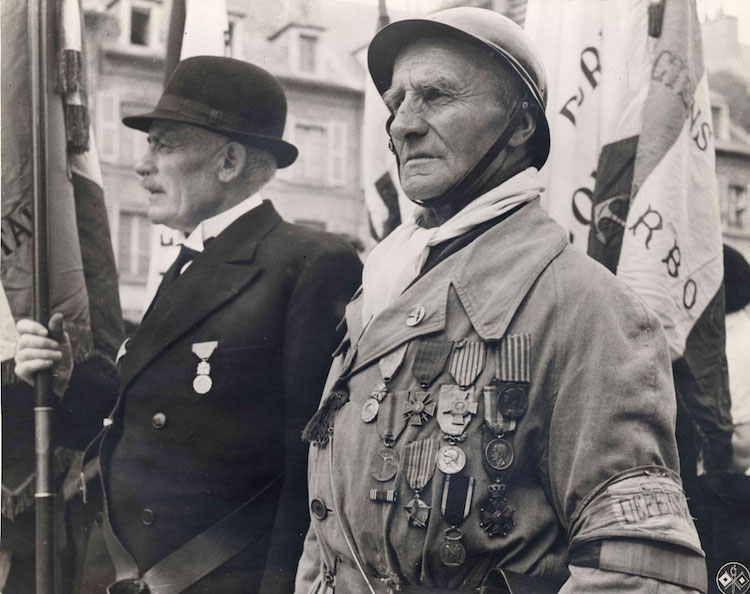
Two veterans with their decorations, on July 14, 1944 in Cherbourg, the helmeted veteran on the right wears a passive defense armband. (Photo: Collection of Rodger Hamilton)
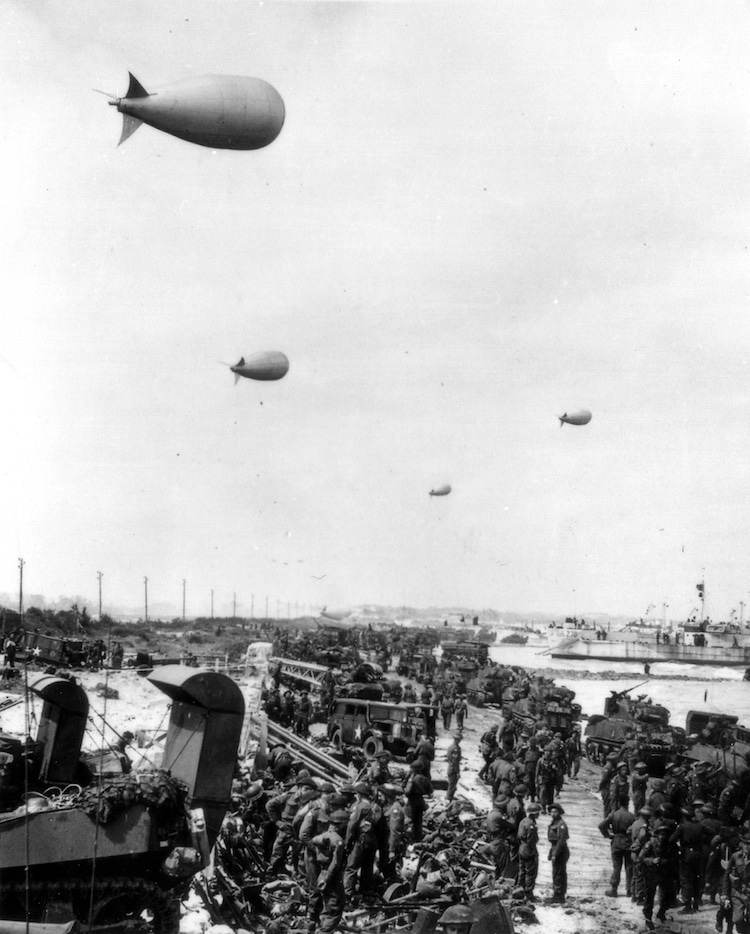
June 6, 1944. Canadian troops and equipment on Nan White Beach in Bernières sur Mer. (Photo: Conseil Régional de Basse-Normandie / National Archives of Canada)
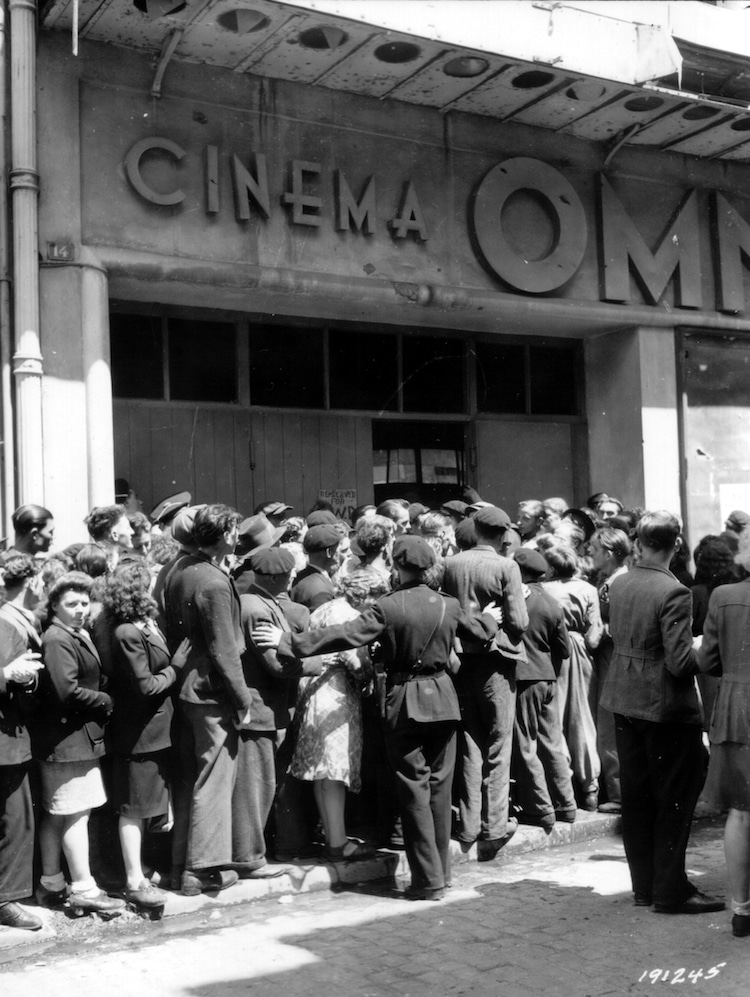
A line of civilians in front of the Omnia theater, as a policeman keeps the crowd on the sidewalk. Taken on July 4, 1944 during a charity gala for the victims of Cherbourg. (Photo: Conseil Régional de Basse-Normandie / National Archives USA)
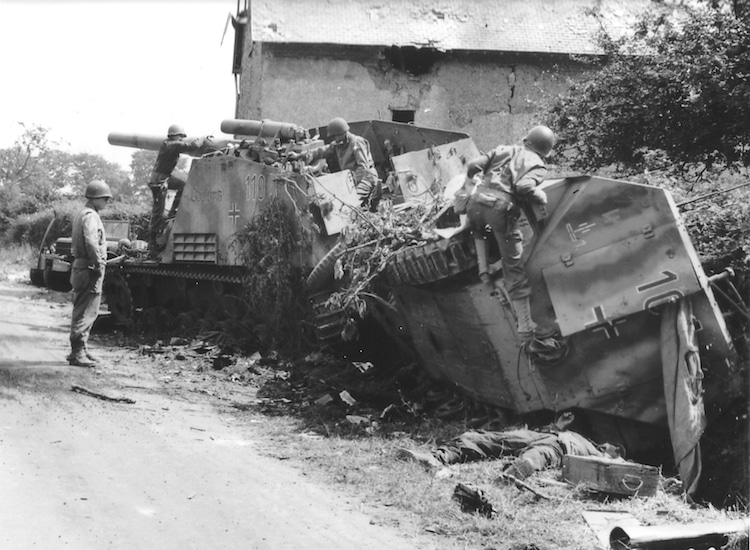
On July 31, 1944, four GIs inspect German armored vehicles neutralized on the side of the road. In the foreground a corpse of a German soldier and another between the two armored vehicles. (Photo: Conseil Régional de Basse-Normandie / National Archives USA)
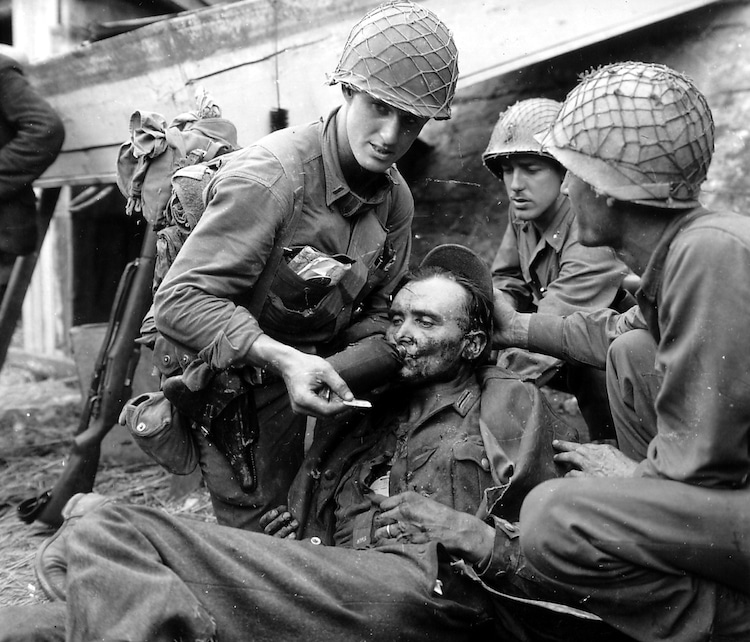
This picture was taken during the liberation of Mantes, on August 19, 1944 at the end of the morning. The German soldier is a motorcyclist who was wounded at 11 am and was recovered by an American patrol which crossed the Seine with the aid of a boat. The US officer who gives the casualty a drink is Lieutenant Stockridge Bacchus (A Company of the 314th Inf., 79th US Inf. Div), behind the wounded is Sergeant Harril (front) who opened fire and Injured the motorcyclist. (Photo: Conseil Régional de Basse-Normandie / National Archives USA)
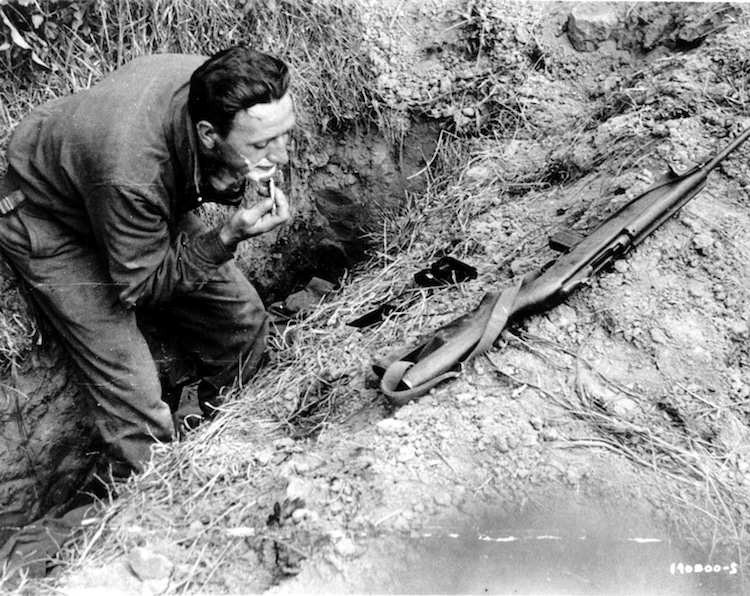
During the Liberation of Lower Normandy during the summer of 1944. An American GI uses his M1 rifle as a support for his pocket mirror, which he uses to shave.

At the Lison crossing. (Photo: Collection of Rodger Hamilton)
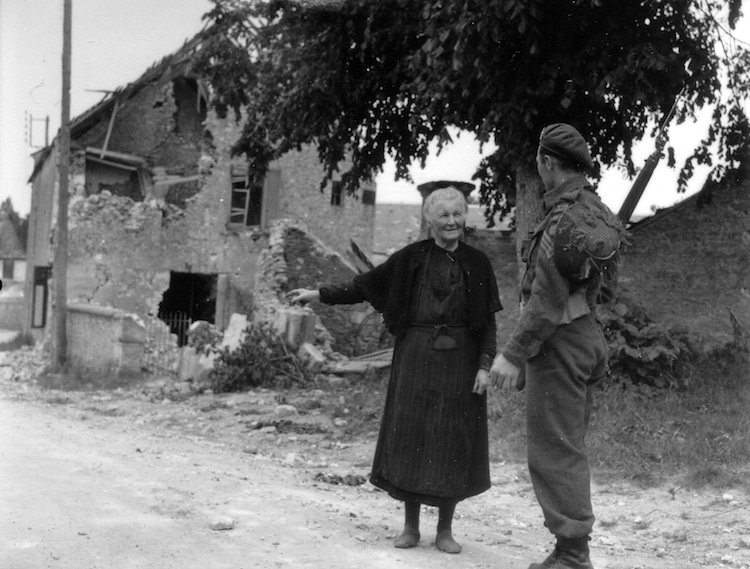
Sergeant L. Desrosiers of the Chaudière Regiment looks at the damage of the battle with Marie Lesage, a resident of the village of Rots.

On August 20, 1944, a group of soldiers of the I Coy, 3 / 318th, in the ruins in front of the German placement office (STO recruitment office)- The Infantry Regiment of the 80th US Infantry Division is grouped around the Tec. 5 H.C. Medley playing the accordion; The rightmost soldier would be Jackson R. Thomas.These soldiers liberated Argentan on August 20, 1944. (Photo: Conseil Régional de Basse-Normandie / National Archives USA)
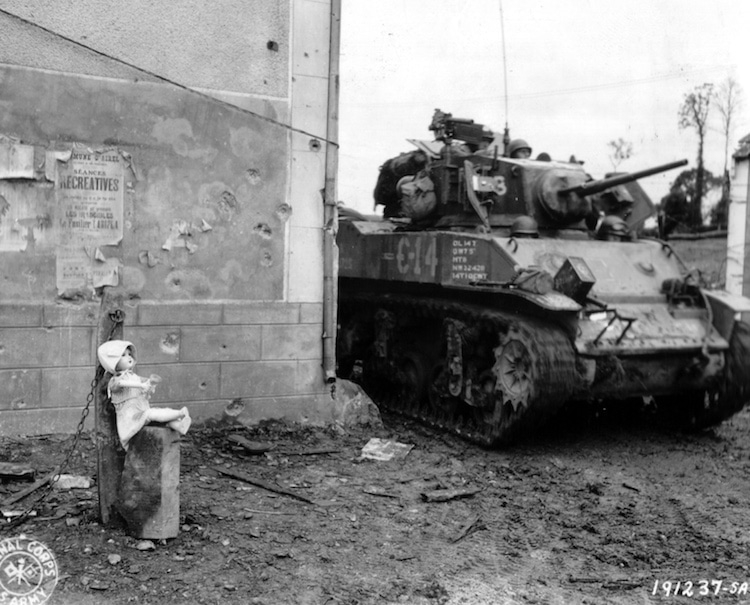
An American tank at La Vauterie, hamlet of Saint-Fromond. (Photo: Conseil Régional de Basse-Normandie / National Archives USA)
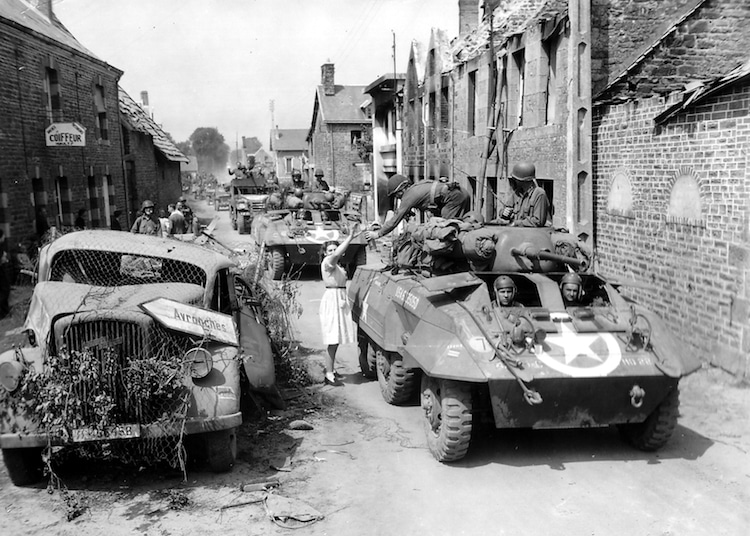
A woman stretches to give a bottle of water to a member of the 4th US Armored Division as they cross Le Repas, commune of Folligny, on July 31, 1944. (Photo: Conseil Régional de Basse-Normandie / National Archives USA)
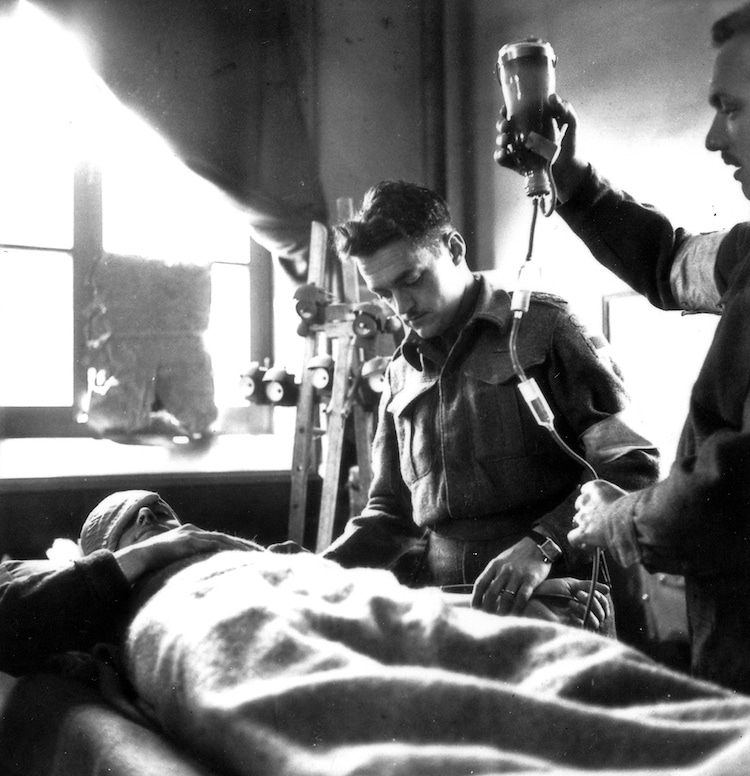
Members of the Royal Canadian Army Medical Corps, Sergeant T.F Mc Feat and Private J. Viner, administer plasma to a victim.
PhotosNormandie: Flickr
All images and captions (adapted from French) via PhotosNormandie.
Related Articles:
21-Year Old WWII Soldier’s Sketchbooks Reveal a Visual Diary of His Experiences
Once-Censored Photos of the WWII Japanese Internment Camps Are Finally Revealed
Newly Discovered 31 Rolls of Film Shot by an Unknown Soldier During WWII
Yale University Unveils 170,000 Fascinating Photos Documenting the Great Depression and WWII
